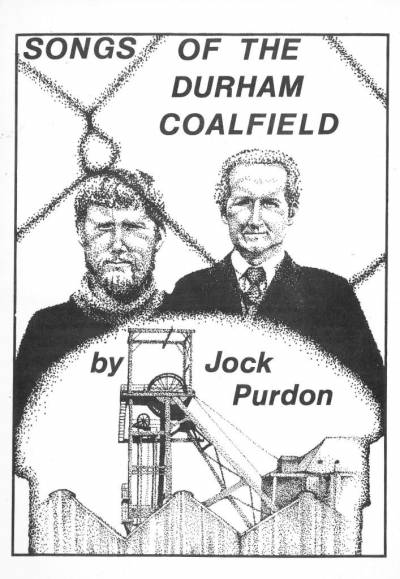Coal Mining & the Victoria Pit Disaster
Jock Purden
Many people we spoke with mentioned a former resident of Nitshill, Jock Purden, but they knew little about him. For those interested in learning about Jock, otherwise known as ‘The Miners’ Poet’, read on…
One of Nitshill’s most famous sons was George ‘Jock’ Purdon (1925 – 1998), who was a poet and folk singer. Jock Purdon left Nitshill, a former mining village, to spend most of his life as a coalminer in Chester-Le-Street, County Durham. Mining shaped his poems and songs and gave him the moniker - ‘the miners' poet’. At the age of thirteen, Jock saw the start of World War II and his older brother, Robert, enlist in the Royal Scots regiment. Robert served as a commando and was killed in France after the Normandy Landings in 1944. By a quirk of fate, Purdon was not destined to join his brother in the army but was conscripted into the coal mines instead. He later married and continued working in the County Durham pits after the war. Jock and his fellow miners dug coal from three-foot seams, often working in water reaching up to their knees. Their shared hardship influenced Jock’s poems and music, many of which reflected the sense of community that he experienced whilst living and working in mining villages. The Easington Explosion laments the deaths of eighty-one miners and two rescuers in a single accident that happened in 1951 – exactly one hundred years after the Nitshill Colliery disaster.
For Jock, mining and politics were inseparable, and his words encapsulated his contempt for those who put profit before people. It was he who coined the word ‘Pitracide’, meaning ‘to murder a pit for economic reasons’. During the 1984-1985 miners’ strike, Jock became known as the ‘Miners’ Poet’ when he began to perform his songs for the benefit of striking miners and their families. Jock died in 1998 but his songs and poems still resonate with mining communities.
In the UK, coal mining was not a reserved occupation at the start of WWII, which led to a great shortage of coal miners. Consequently, starting in December 1943, one in ten men conscripted had to work in the mines. These men became known as ‘Bevin Boys’, after the creator of the scheme, Ernest Bevin, the Minister of Labour and National Service. Jock Purdon was one of the very first contingent designated for the mines on 14 December 1943.

